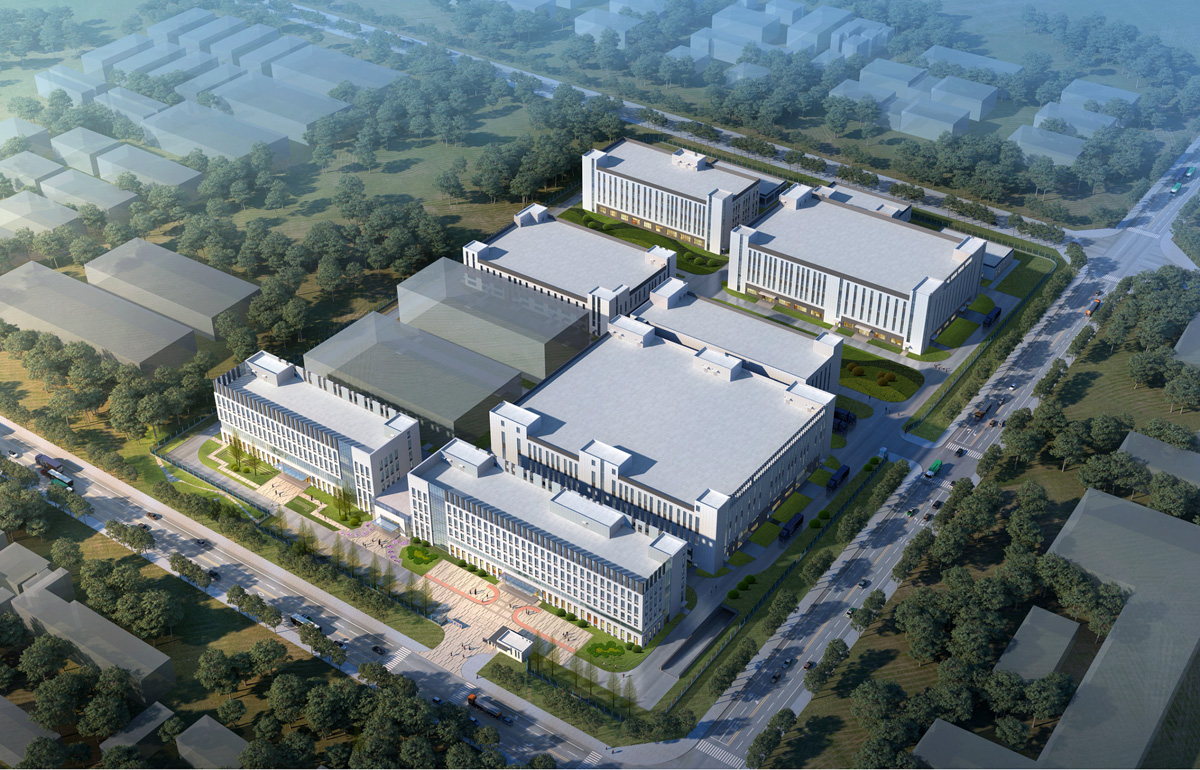Mayor of Qingdao Visits Vland's National Engineering Technology Research Center for Animal Health Products and the Integrated Production Base
On May 18, a delegation of government officials led by Mr. Zhao Haozhi, Deputy Party Secretary and Mayor of Qingdao, visited Vland’s project of National Engineering Technology Research Center for Animal Health Products and the integrated production base for veterinary vaccines (hereinafter referred to as “the project”) located in Qingdao National High-tech Industrial Development Zone. Mr. Huang Bingliang, Chairman of Vland, introduced the general state of the project to the delegation.
As an important part of China’s National Independent Innovation Demonstration Zone on Shandong Peninsula, Qingdao National High-tech Industrial Development Zone positions itself as the highland of innovation and entrepreneurship in Qingdao. It is now speeding up to develop high-tech industries with a focus on building a “3+1” cluster of industries including new generation IT technology, medical treatment and pharmaceuticals, AI + advanced equipment manufacturing and modern services.
Vland’s project covers an area of 119 mu (or 7.93 hectares) with a total investment of 800 million yuan and a planning floor area of 137,000 square meters. This project aims to construct the engineering center, workshops of veterinary diagnostic products, animal vaccines, animal health products and quality inspection, animal houses, etc.

Among the main strategic vaccine reserves of the project are inactivated trivalent vaccine of porcine circovirus, Haemophilus parasuis and Streptococcus suis, inactivated trivalent vaccine of Porcine Reproductive & Respiratory Syndrome, porcine circovirus and Mycoplasma hyopneumoniae, and inactivated bivalent vaccine of Newcastle disease and avian influenza (suspension culture), all of which were never seen before in China.
At present, 10 single buildings have all been capped and 350 million yuan has been invested. The project is scheduled to be completed and put into operation in June 2022.
The implementation of the project can significantly reduce the production costs of animal vaccines and health care products, further enhance the company's innovation capabilities in R&D, substantially improve product quality and the level of intelligent manufacturing, and therefore improve product competitiveness.


 Add.:
Add.:  Tel.: +86 532 88969585
Tel.: +86 532 88969585 Email: kdn@vlandgroup.com
Email: kdn@vlandgroup.com